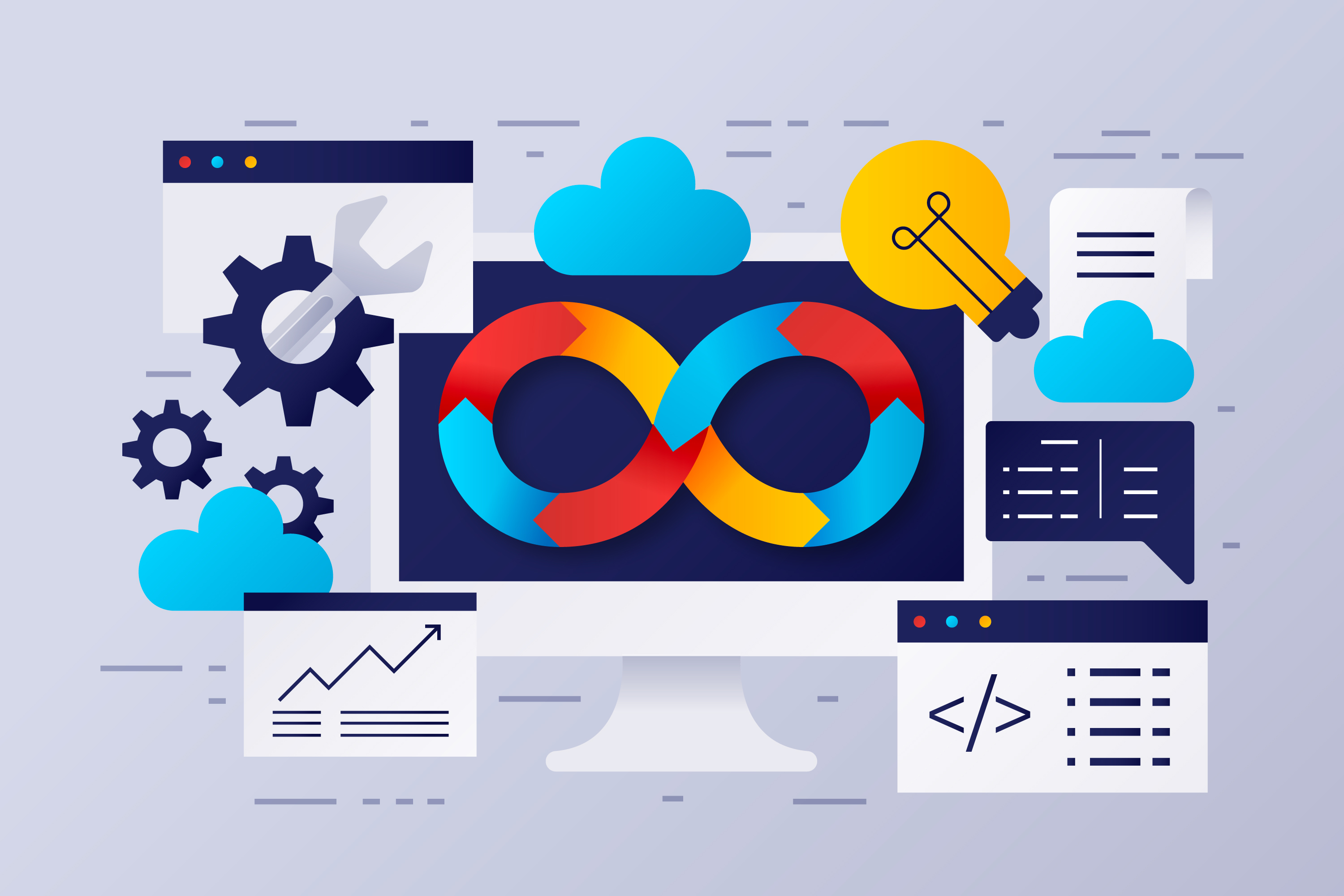
How to Become a Software Engineer (Without a CS Degree)
No CS degree? No problem. Learn to code, build real projects, and land a dev job through bootcamps or self-teaching.
How to Become a Software Engineer (Without a CS Degree)
A lot of people still believe the only way into software engineering is with a computer science degree. That belief stops many from even trying.
But things have changed. Big companies like Google and Apple care less about diplomas and more about what you can build. What matters most now is your skill — and there are plenty of ways to get those skills without setting foot in a university lecture hall.
You can go the self-taught route or enroll in a coding bootcamp. Both paths can lead to full-time jobs, even if you’re starting from scratch. It takes time and consistency, but the opportunity is real.
Why You Can Skip the CS Degree (and Still Get Hired)
Let’s talk about the shift happening in tech hiring.
More companies are open to hiring people from non-traditional backgrounds. They’ve seen that real-world experience often beats theory. In fact:
Google, IBM, and Apple have dropped CS degree requirements for many technical roles.
A Course Report study showed coding bootcamp grads earn around $70,000 as a starting salary.
The StackOverflow Developer Survey found that around 40% of developers are self-taught.
What makes the difference isn’t a degree. It’s a solid GitHub profile, a few working projects, and your ability to solve real problems.
3 Main Paths to Learn Software Engineering

There isn’t one single path that works for everyone. Your choice depends on how much time you have, your budget, and how you like to learn.
1. Self-Learning (Free or Cheap)
This path is flexible and budget-friendly. You’ll find tons of free content online.
Try:
freeCodeCamp (great for beginners)
YouTube (channels like The Net Ninja, Fireship, and CS50)
Coursera or edX (low-cost certifications)
roadmap.sh (see what skills to focus on next)
Pros:
Flexible schedule
No cost
Choose your learning style
Cons:
No structure
Easy to lose motivation
Slower progress
If you go this route, try setting a weekly learning goal and build something every few weeks. That helps keep momentum going.
2. Coding Bootcamps
Bootcamps are fast-paced and built around job readiness. You’ll usually finish in 12–24 weeks with a portfolio and job prep.
Why people like it:
Clear learning path
Mentorship and feedback
Real-world projects
Career coaching
Stat to know: Around 79% of bootcamp grads land jobs within 6 months (Course Report).
Bootcamps are great if you're serious about making a change quickly. They can be intense, but the structure helps many stay focused.
Not sure where to start? Find a bootcamp that fits your timeline and learning goals.
3. Traditional CS Degree
This option still works — especially if you’re already in college or thinking about research or academia. But for most people aiming for entry-level software jobs, it’s not essential.
Drawbacks:
Expensive
Time-consuming
Heavy on theory, light on projects
If you're not already in school, you probably don’t need this route
Skills You’ll Need as a Software Engineer

Let’s keep it simple. Here’s what most beginner-friendly jobs expect:
Languages:
HTML, CSS, JavaScript (for web)
Python or Java (for logic and back-end)
Frameworks/Libraries:
React (for front-end)
Node.js, Express (for back-end)
Django (Python-based full stack)
Tools:
Git and GitHub (version control)
VS Code (code editor)
Chrome DevTools (debugging)
Foundational Concepts:
How the web works (HTTP, APIs)
Problem-solving and logic
Databases (SQL, NoSQL)
Basic algorithms and data structures
Don’t let the list overwhelm you. Learn one thing at a time, build something with it, then move on.
Step-by-Step: How to Become a Software Engineer Without a Degree

Here’s a straightforward path that’s worked for thousands of people.
Step 1: Pick Your Learning Path
Decide if you’ll go self-taught or join a bootcamp. There’s no wrong choice — go with what fits your life and budget.
Step 2: Learn Programming Basics
Start with JavaScript or Python. Focus on writing simple programs, solving problems, and understanding logic.
Avoid bouncing between too many languages. Stick with one until you can build something real.
Step 3: Build Projects
Nothing shows your skills better than a working app. Start small.
Ideas:
To-do list app
Weather checker
Simple blog site
Rock-paper-scissors game
Chatbot or calculator
Don’t worry if it’s not perfect. Getting it to work is the goal.
Step 4: Use Git and GitHub
Every software job expects you to know version control. Use Git from day one. Push all your projects to GitHub.
This becomes your public resume. Recruiters will look.
Step 5: Join Online Tech Communities
Learning alone can get lonely. Join Reddit threads, Discord servers, Twitter/X circles, or post on Dev.to.
You’ll find support, answers, and maybe job leads.
Step 6: Build a Portfolio Website
This is where you’ll showcase:
Links to your live projects
Screenshots and descriptions
Your GitHub profile
A short intro about yourself
Tools like Carrd, Framer, or WordPress work well.
Step 7: Get Ready for Jobs
Now it’s time to prep for the job hunt.
Make a resume that lists your projects and skills
Practice interview questions and challenges on LeetCode or HackerRank
Join mock interviews or review your resume with others
Apply to junior dev roles, internships, apprenticeships
Don’t wait until you feel 100% ready. You learn a lot during the interview process too.
What Recruiters Want (When You Don’t Have a Degree)
They’re not looking for a certificate. They want to know:
Can you write code and solve problems?
Have you built anything?
Do you keep learning?
Can you explain your work clearly?
Your background doesn’t matter much if your work speaks for itself.
Bootcamps or Self-Taught?
Here’s how to choose between them:
Self-Taught Works Best If:
You have time
You’re patient
You enjoy figuring things out on your own
Bootcamps Work Best If:
You want structure and mentorship
You need to switch careers quickly
You like deadlines and accountability
Neither path is “better.” It’s about what you’ll actually stick with.
You Can Do This — With or Without a Degree
It’s easy to feel like you don’t belong in tech without a traditional background. But the truth is, a ton of successful developers started just like you — learning in their spare time, building tiny projects, and slowly improving.
You don’t need four years or a pile of debt. You need a clear plan, consistent effort, and a few real-world projects.
If you’re thinking about starting, the best time is now. Pick a language. Build something small. Share it. Keep going.
The tech world is big enough for you too.
Want extra help? Explore our full-time or part-time bootcamps that guide beginners through everything — no CS degree needed.
You may also like
How 2026 AI Will Leave You Behind If You Do Not Learn It
AI is quietly becoming the brain behind your apps, workflows, and future job. This article shows how OpenClaw, Moltbook, and agentic AI are changing what engineers do and nd why learning AI engineering now protects your career.
Real World Use-Cases of Software Engineering Principles in Spotify and Netflix
Understand how Spotify's Discover Weekly uses collaborative filtering while Netflix combines multiple algorithms to create personalized experiences for hundreds of millions daily.
AI Automation's Impact on Entry-Level Tech Hiring in 2026
As AI automation reshapes the tech job market by 2026, entry-level roles will evolve dramatically. Discover how aspiring developers can adapt and thrive in this changing landscape by focusing on skills that complement AI technologies.


